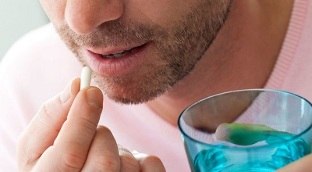
Antibiotics for prostatitis are prescribed almost immediately if the patient turns to a urologist in the acute stage of the inflammation. That is, the doctor does not wait for the test data. Therefore, in early times, a drug with a broad spectrum of action is chosen, the selection scheme is very similar when selecting antibiotics for cystitis.
Once the doctor has received the laboratory data, it usually takes two to three days to decide whether to continue the chosen therapeutic treatment or to prescribe a new, more effective drug.
When selecting a drug, the physician should take into account the patient's age, history of certain somatic diseases, and allergic reactions.
The patient, on the other hand, should warn the doctor about previously used antibiotics.
If a man has been treated with some medication for a few weeks before prostatitis, it is very likely that at this stage it will not be as effective as it is needed to relieve the inflammation.
Different groups of antibiotics include so-called "reserve" drugs, which include drugs that have a strong effect on the body. The urologist will only prescribe them if previous conservative treatment has not helped.
Antibiotic therapy requires certain conditions.
- Antibiotics are prescribed for a set period of time. Usually at least 2 weeks. In the future, the doctor will assess the condition of the prostate gland and cancel the medicine or advise you to continue treatment;
- The dose of the drug is also chosen individually;
- Complete treatment should be performed. If it is interrupted, the body creates the right conditions for the transition of the acute infectious process to chronic;
- Up to three days should elapse between the start of antibiotics and the reduction of pain and discomfort. If the condition does not improve after this period, you should see your doctor again to review your therapy and select another antibiotic.
Antibiotic therapy is one of the most important conditions for the complete recovery of bacterial prostatitis. The sick person needs to understand that their future trouble-free life depends on following a full treatment regimen.
Anti-prostatitis antibiotics are selected from the following groups of drugs:
- Penicillins. The effect of this group on bacteria varies widely, so it is most often prescribed just before obtaining laboratory data. Another advantage of these drugs is their budget price, so all patients can be treated;
- Macrolidespenetrate perfectly into the tissues of the prostate gland and begin to fight infection after the first ingestion. This class of drugs is virtually non-toxic and does not affect the state of the intestinal microflora;
- Cephalosparins. They are mainly used in hospitals because they are administered intramuscularly or intravenously;
- For tetracyclines.Effective for chlamydial prostatitis. But these drugs are very toxic and spermotoxic. Therefore, they are not prescribed before the concept is designed;
- fluoroquinolones.Used when drugs from other groups have no effect.
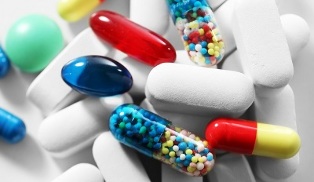
When using antibiotics for the first time, any changes in your health should be recorded. These drugs often cause severe allergic reactions, especially in patients with a history of allergies.
It is not always possible to get rid of prostatitis at home because before prescribing any antibiotics, your doctor will need to check your reaction to the bacteria found.
Due to the high number of side effects, treatment should be performed under the supervision of a specialist. In case of unpleasant symptoms, contact your doctor immediately and change the medicine.
Antibiotics in the form of pills for the treatment of prostatitis may contain different active ingredients. Therefore, the list of such drugs is quite extensive and only a doctor can prescribe the appropriate one.
Fluoroquinolones
The most effective antibiotics for prostatitis, according to urologists, belong to the group of fluoroquinolones. Benefits of fluoroquinolones in the treatment of prostatitis:
- large distribution volume;
- creating high concentrations of the substance in the prostate;
- penetrates the cells;
- has a post-antibiotic effect - after withdrawal of the drug, the concentration that inhibits the growth of bacteria remains in the cells for several days;
- is most often taken once a day.
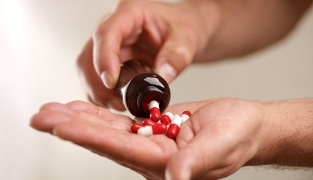
There are several generations of this type of antibacterial drug. In urological practice, the second, third, and fourth generations are most commonly used.
Anti-prostatitis antibiotics from the group of third-generation, fourth-generation fluoroquinolones allow inflammatory processes initiated by the mixed microflora - facultative anaerobes, gram-positive, gram-negative bacteria (Escherichia coli, staphylococci, atococci, enterococci)treatment of bacteria.
The active ingredients of fluoroquinolone preparations for prostatitis are: levofloxacin, ciprofoloxacin, moxifloxacin.
Antibiotics for acute prostatitis in men can be used for two weeks instead of one month if conditionally pathogenic flora disease develops.
As a general rule, drugs in this group are well tolerated by patients. The most common side effects are nausea and diarrhea. Phototoxicity is rarely recorded.
If chronic bacterial prostatitis has started, a different treatment strategy should be used.
Symptoms are not as pronounced as in an acute process. The patient complains of rare pain, urinary problems, and sexual problems.
Chronic bacterial prostatitis is dangerous: it goes away almost unnoticed in most men, with episodic pain but leading to infertility, erectile dysfunction, prostate disorders and prostate adenoma.
All of this suddenly becomes apparent when obvious signs of these problems begin to bother you.
Suppressed by discomfort and episodic pain, he turns to a male urologist, which becomes more common over time.
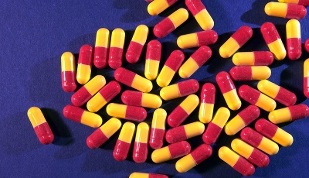
As with acute prostatitis, the doctor will perform the necessary tests (blood tests, urine tests, palpation and bacterial culture) and then develop a treatment regimen.
Treatment lasts an average of 4-8 weeks. This is a serious stress for the body because in addition to the targeted microflora, our friends also suffer. Therefore, taking antibiotics involves taking drugs that primarily regenerate the gastrointestinal microflora.
In addition to antibiotics, the patient is prescribed physiotherapy and medications that relieve edema and relax the smooth muscles of the prostate gland, not to mention folk remedies that accelerate the therapeutic effect in complex therapy.
Tetracyclines
Available in two dosage forms, it is very active against chlamydia and mycoplasma, making it more effective in chronic prostatitis associated with sexually transmitted diseases. The optimal drugs are those with the best pharmacokinetic data and tolerability.
However, tetracyclines have a destructive effect on gram-positive flora, including nosocomial infection of methicillin-resistant staphylococcus. The drugs destroy the intracellular forms of chlamydia, mycoplasma, ureaplasma. The advantage of tetracyclines is the lower incidence of intestinal dysbiosis and the presence of an anti-inflammatory effect. They are ineffective against the gut, Pseudomonas aeruginosa.
For chlamydial, mycoplasma and ureaplasma infections, the medication is taken for 3 weeks, the other pathogens require a two-week application.
Devices from this group should not be taken at the same time as dairy products.
Macrolides in the treatment of prostatitis
Macrolides (including azalides) should only be used under certain conditions, as there is little scientific evidence that they are effective in prostatitis, and this group of antibiotics has little activity against gram-negative bacteria.
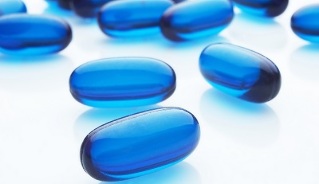
But the use of macrolides should not be completely abandoned as they are quite active against gram-positive bacteria and chlamydia.
Macrolide antibiotics used to treat inflammation of the prostate have a growth inhibitory effect against atypical intracellular bacteria, gram-positive microorganisms (cocci).
The advantage of macrolides in the treatment of prostatitis is their low toxicity compared to fluoroquinolones. Macrolides are produced in high concentrations in the glandular tissues and are postantibiotic, anti-inflammatory and immunomodulatory. Drugs have a beneficial effect on phagocytosis, inhibiting oxidative stress in cells. Macrolides can be used in adolescents.
If prostatitis is caused by an opportunistic flora, treatment may take up to two weeks. The drugs can be taken in combination with fluoroquinolones.
Many patients are interested in what antibiotics to take for prostatitis in men with a history of penicillin allergy. Devices belonging to the macrolide group do not have cross-type allergies to drugs belonging to the group of penicillins and cephalosporins, so allergy sufferers can take them safely.
























